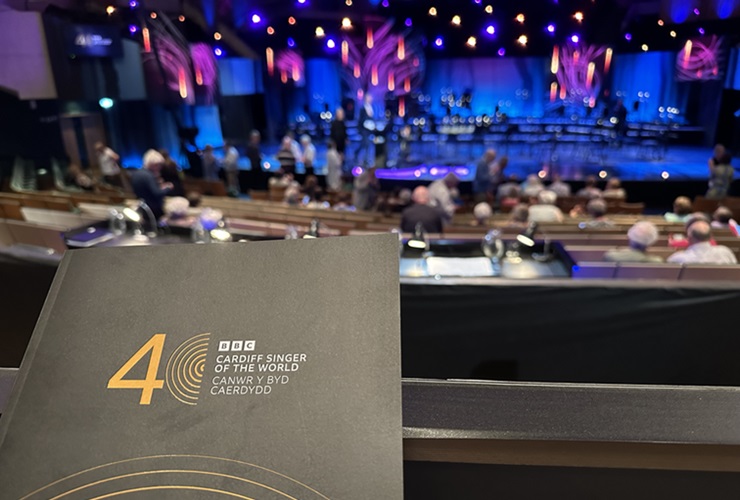
Just two questions really...
There really are only two questions that should be asked of a brass band adjudicator.
The first is if have they have the skill set required to judge a contest in an equitable, informed way. The second is whether you trust them to do so?
They are also the questions an adjudicator should ask of themselves.
Tiresome relic
However, with the various Regional Championships on the horizon, and the opprobrium that arose following the last year’s National Final still lingering in the social media air like an unresolved conspiracy theory, the thorny issue of their integrity will surely raise its head once more.
It’s a topic that has become a tiresome relic of a contesting environment long overdue radical overhaul and re-evaluation, but one which also faces more important fundamental questions of its own.
It’s a topic that has become a tiresome relic of a contesting environment long overdue radical overhaul and re-evaluation, but one which also faces more important fundamental questions of its own.
Time and time again we have failed to address the bigger issues about how we increase participation, evaluate different levels of competitive excellence, liberalise rules and modernise listener and participant experience.
Football phone-ins
Instead, like football phone-ins on a Saturday night, the focus of bilious subjective discontent, accusations of bias, incompetence and even downright cheating is reserved for the people we ask to judge us.
In response, the more football has tinkered with the system of decision making, the increasingly opaque and indefensible it has become. Trust in the decision-making referees has evaporated, and we are increasingly in danger of the same happened with contest adjudication.
Such is the level of distrust, that it is no longer people questioning an errant ‘Who Wants to be a Millionaire’ audience cough or pre-planned stamping of a conductor’s feet, but of confederates in conspiracy through the use of smart watches and mobile phone texts.

Coughs replaced by smart watches...
Mornington Crescent
The badly thought out ‘rules’ response surrounding connective ‘conflicts of interest’ announced in November 2023 by the Association of Brass Band Adjudicators, simply muddied the toxic waters further - making them read like a brass band version of the game ‘Mornington Cresent’ on the Radio 4 comedy panel show ‘I’m Sorry I Haven’t a Clue’.
Now, both contest organisers and judges must consider measuring their suitability for an adjudication not simply on the questions on skill and trust, but also to increasingly unfeasible links to time and genealogy lines between them and bands.
Now, both contest organisers and judges must consider measuring their suitability for an adjudication not simply on the questions on skill and trust, but also to increasingly unfeasible links to time and genealogy lines between them and bands.
It was a statement that in addition to re-emphasising guidance that precluded “members adjudicating a band they have had direct contact with (playing, conducting or preparing) within three months of said contest,” added the addendum that they “must not accept an invitation to adjudicate where a parent, spouse, sibling or child is involved with a competing band” either.
Why 3 months and not, two, four or six? And why only a spouse (legally married person) and not a partner or cohabitee, a sibling (someone who shares at least one parent) but no other extended family members, lifelong friends or business partners?
All this and not a single mention of players or conductors involved in the same qualification process at the same level (as in the Regional Championships) adjudicating direct rival bands in different area events?

There are connections everywhere between judges and bands...
Birth certs and WhatsApp messages
It was a collective washing of hands Pontius Pilate would have admired – leaving contest administrators in an invidious position. They will soon have to ask to see birth certificates and WhatsApp messages to satisfy judging credentials.
What should have been the catalyst for fundamental change simply resulted in yet more needless complexity.
In its defence, AoBBA has done a great deal in improving the professional levels of competence of its members (as well as increase its membership), but as has been shown in their statement, like other organisations it remains shackled to a Victorian system of contest adjudication that simply reinforces the fundamental question of a lack of trust.
And since the very first contests over 170 years ago, that has been the unwritten article of competitive adjudication faith: Trust in a judge – or lack of it.
Pandora's Box
The ‘box’ we were told added the element of fairness to proceedings. Judges could not be swayed by either prejudice, favouritism or the ludicrous notion of a form of ‘unconscious banding bias’. The potential for crookedness may have been blinded, although incompetence was another matter entirely.
Closed adjudication it was argued acted like a form of protective Pandora’s Box – opening it and out would pop the evils of bias, partisanship, discrimination and nepotism to ruin the Arcadian fields of play, whilst hope in simply relying on professional competence would be lost forever.
Closed adjudication it was argued acted like a form of protective Pandora’s Box – opening it and out would pop the evils of bias, partisanship, discrimination and nepotism to ruin the Arcadian fields of play, whilst hope in simply relying on professional competence would be lost forever.
And hope has indeed been lost if we have allowed ourselves to become so insular in our thinking and so corroded by distrust that we rather stick someone in a tent for eight hours to protect a nonsensical vision of righteous Victorian rectitude, than open things up and bring competitive banding into the 21st century.
Time then surely to at least try and embrace fundamental change and trust ourselves to have trust in our adjudicators.

Ultimate trust: Sat behind the judges at Cardiff Singer of the World competition
Trust in transparency
Last year 4BR was fortunate enough to be invited to the ‘Cardiff Singer of the World’ competition and able to speak with those involved in its production.
I was told that the adjudication process was all about trust in transparency. The panel knew and had even worked with many of the competitors, their teachers, agents and representatives. They also had established opinions on their repertoire strengths and weaknesses and of their performance CVs from judging many of their appearances on the competition circuit. And so did everybody else. Nothing was hidden.
It was all hugely professional, and all based on the essential elements of communal trust in expertise – the very core questions that we ourselves should be asking of and expecting from our very own judges.
In plain sight
And there they sat in judgment in plain sight for all to see (chatting and sharing views between performers) for the competitors to impress. They were not even asked to hand in their mobile phones.
Each night they came to their conclusions without perceived sense from the audience of favouritism (one of the qualification rounds was won by the Welsh competitor) or accusations of ‘unconscious bias’.
It was all hugely professional, and all based on the essential elements of communal trust in expertise – the very core questions that we ourselves should be asking of and expecting from our very own judges.
Time to do the same
So why can’t brass banding do the same?
There is simply no justification not to open the adjudication process in the lower sections.
If we haven’t even got faith in the trust and expertise of our judges at these levels, then we deserve to fade away in irrelevance.
And they are certainly out there too – and they don’t give a damn what colour uniforms a band plays in, what players are in the ranks or what shapes the conductor is throwing either to excite the audience.
And just think of the number of conductors and players in the orchestral/operatic worlds who would bring a fresh and informed perspective to contest adjudication at elite level too as part of balanced panels, not of two or three, but of five people – and in the open?
And they are certainly out there too – and they don’t give a damn what colour uniforms a band plays in, what players are in the ranks or what shapes the conductor is throwing either to excite the audience.

Open all the boxes at the Albert Hall?
False protectionism
If we are to show the wider world that we are a competitive movement that deserves to be taken seriously then it is about time we simply employed the very best judges we can (and there a host of musicians and conductors with brass banding experience we could ask to be part of panels at all levels) and rid of ourselves of a ludicrous forms of false protectionism that only go to showcase our deficiencies and lack of musical maturity.
We desperately need to open ourselves up to more musicians from different brass playing experiences - conductors and players and from the orchestral, wind and operatic fields who bring insight and broader appreciation of our music making.
Brass banding needs judges able to work in a manner based on trust, expertise and transparency – from Youth banding to elite level. And in doing that we must also be willing to accept informed criticism from those who have not been cocooned in the isolation of brass banding all their lives.
We desperately need to open ourselves up to more musicians from different brass playing experiences - conductors and players and from the orchestral, wind and operatic fields who bring insight and broader appreciation of our music making.
They will also have the musical experience to look for and hear a ‘cheat’ when it happens from a score.
It will of course come at a cost financially – but trust and professionalism always does.
Then again, just ask yourself those two opening questions once more and wonder if it is a price worth paying.
Iwan Fox
If you wish to present your opinion on any topic in banding you feel needs to be discussed and explored further, please contact the 4BR Editor at: iwan.fox@googlemail.com













